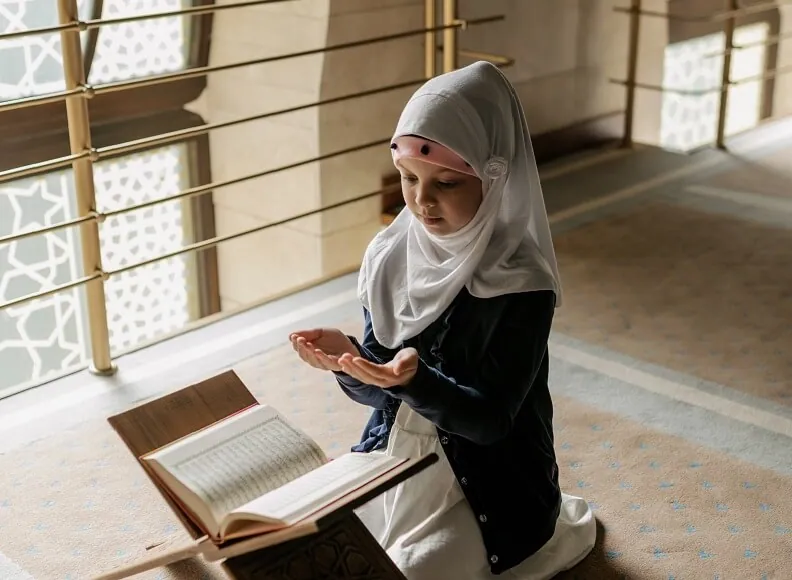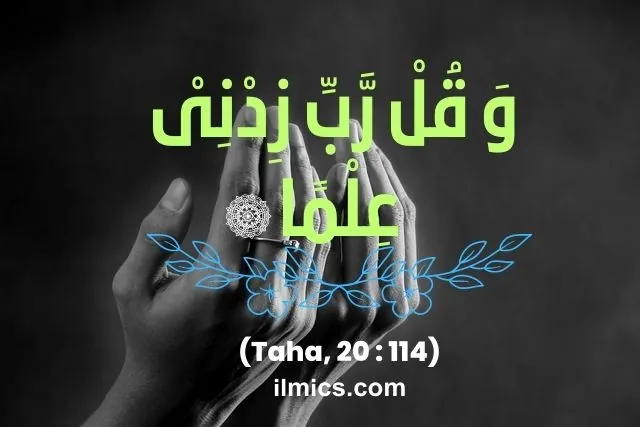Dua e Maghfirat: The Profound Impact of Seeking Forgiveness
Introduction
In the course of our life’s journey, we inevitably encounter moments of stumbling, regret, and the weight of our mistakes. However, among these challenges lies a profound and life-changing endeavor—the pursuit of forgiveness. This pursuit possesses remarkable power, not only in seeking absolution from others but also in seeking clemency from a higher authority. Within the Islamic faith, the practice of seeking forgiveness finds its eloquent manifestation in Dua e Maghfirat. This insightful piece explores the significance of Dua e Maghfirat and its capacity to foster spiritual advancement and reparation.
Decoding Dua e Maghfirat: A Pathway to Redemption
Dua e Maghfirat or maghfirat ki dua, often referred to as the “Prayer of Forgiveness,” holds a special place in the hearts of Muslims worldwide. It is an invocation that implores Allah for the forgiveness of past sins and wrongdoings. By reciting this supplication, believers express remorse and seek absolution for their transgressions, acknowledging their inherent fallibility as human beings.

This powerful prayer serves as a means to connect with Allah and seek His mercy and forgiveness. It represents a heartfelt plea to be cleansed of sins, relieved of guilt, and embarked on a path of spiritual renewal and growth. Dua e Maghfirat encompasses the essence of repentance, providing believers with an opportunity to reconcile with ALLAH and find solace in His mercy.
Dua e Maghfirat from Quran
Al-Baqarah, 2 : 286
رَبَّنَا لَا تُؤَاخِذْنَاۤ اِنْ نَّسِیْنَاۤ اَوْ اَخْطَاْنَا ۚ رَبَّنَا وَ لَا تَحْمِلْ عَلَیْنَاۤ اِصْرًا كَمَا حَمَلْتَهٗ عَلَی الَّذِیْنَ مِنْ قَبْلِنَا ۚ رَبَّنَا وَ لَا تُحَمِّلْنَا مَا لَا طَاقَةَ لَنَا بِهٖ ۚ وَ اعْفُ عَنَّا ۥ وَ اغْفِرْ لَنَا ۥ وَ ارْحَمْنَا ۥ اَنْتَ مَوْلٰىنَا فَانْصُرْنَا عَلَی الْقَوْمِ الْكٰفِرِیْنَ۠ (al-Baqarah, 2 : 286) ‘O our Lord, do not take us to task if we forget or do some mistake. O our Lord, lay not on us such a (heavy) burden as You laid on those before us. O our Lord, put not on us (also) the burden that we have not the strength to bear, and overlook (our sins), and forgive us and have mercy on us. You alone are our Master and Helper. So grant us victory over the disbelievers.’ اے ہمارے رب! اگر ہم بھول جائیں یا خطا کر بیٹھیں تو ہماری گرفت نہ فرما، اے ہمارے پروردگار! اور ہم پر اتنا (بھی) بوجھ نہ ڈال جیسا تو نے ہم سے پہلے لوگوں پر ڈالا تھا، اے ہمارے پروردگار! اور ہم پر اتنا بوجھ (بھی) نہ ڈال جسے اٹھانے کی ہم میں طاقت نہیں، اور ہمارے (گناہوں) سے درگزر فرما، اور ہمیں بخش دے، اور ہم پر رحم فرما، تو ہی ہمارا کارساز ہے پس ہمیں کافروں کی قوم پر غلبہ عطا فرما Reference
Al-i-Imran, 3 : 16
رَبَّنَاۤ اِنَّنَاۤ اٰمَنَّا فَاغْفِرْ لَنَا ذُنُوْبَنَا وَ قِنَا عَذَابَ النَّارِۚ (Al-i-Imran, 3 : 16) ‘O our Lord, we have surely believed, so, forgive us our sins and save us from the torment of Hell.’ (یہ وہ لوگ ہیں) اے ہمارے رب! ہم یقینا ایمان لے آئے ہیں سو ہمارے گناہ معاف فرما دے اور ہمیں دوزخ کے عذاب سے بچا لے Reference
Al-i-Imran, 3 : 193
رَبَّنَاۤ اِنَّنَا سَمِعْنَا مُنَادِیًا یُّنَادِیْ لِلْاِیْمَانِ اَنْ اٰمِنُوْا بِرَبِّكُمْ فَاٰمَنَّا ۖۗ رَبَّنَا فَاغْفِرْ لَنَا ذُنُوْبَنَا وَ كَفِّرْ عَنَّا سَیِّاٰتِنَا وَ تَوَفَّنَا مَعَ الْاَبْرَارِۚ (Al-i-Imran, 3 : 193) O our Lord! (We were oblivious of You,) then we heard a Caller, calling towards faith: ‘(O people,) believe in your Lord.’ So we embraced faith. O our Lord, now forgive our sins and erase our blunders (from the record of our works) and make us die in the company of the pious. اے ہمارے رب! (ہم تجھے بھولے ہوئے تھے) سو ہم نے ایک ندا دینے والے کو سنا جو ایمان کی ندا دے رہا تھا کہ (لوگو!) اپنے رب پر ایمان لاؤ تو ہم ایمان لے آئے۔ اے ہمارے رب! اب ہمارے گناہ بخش دے اور ہماری خطاؤں کو ہمارے (نوشتۂ اعمال) سے محو فرما دے اور ہمیں نیک لوگوں کی سنگت میں موت دے Reference
Al-A‘raf, 7 : 23
قَالَا رَبَّنَا ظَلَمْنَاۤ اَنْفُسَنَا ٚ وَ اِنْ لَّمْ تَغْفِرْ لَنَا وَ تَرْحَمْنَا لَنَكُوْنَنَّ مِنَ الْخٰسِرِیْنَ (al-A‘raf, 7 : 23) Both of them submitted: ‘O our Lord! We have wronged our souls. And if You do not forgive us and have mercy on us, we shall certainly be amongst the losers.’ دونوں نے عرض کیا: اے ہمارے رب! ہم نے اپنی جانوں پر زیادتی کی؛ اور اگر تو نے ہم کو نہ بخشا اور ہم پر رحم (نہ) فرمایا تو ہم یقیناً نقصان اٹھانے والوں میں سے ہو جائیں گے Reference
Al-Mu’minun, 23 : 118
رَّبِّ اغْفِرْ وَ ارْحَمْ وَ اَنْتَ خَیْرُ الرّٰحِمِیْنَ۠ (al-Mu’minun, 23 : 118) ‘O my Lord, forgive and have mercy, and You (alone) are the Best of those who have mercy.’ اے میرے رب! تو بخش دے اور رحم فرما اور تو (ہی) سب سے بہتر رحم فرمانے والا ہے Reference
Al-Qasas, 28 : 16
رَبِّ اِنِّیْ ظَلَمْتُ نَفْسِیْ فَاغْفِرْ لِیْ فَغَفَرَ لَهٗ ؕ اِنَّهٗ هُوَ الْغَفُوْرُ الرَّحِیْمُ (al-Qasas, 28 : 16) ‘O my Lord, no doubt I have wronged my soul; so bless me with forgiveness.’ Then He forgave him. Surely, He is the Most Forgiving, Ever-Merciful. (موسٰی علیہ السلام) اے میرے رب! بیشک میں نے اپنی جان پر ظلم کیا سو تو مجھے معاف فرما دے پس اس نے انہیں معاف فرما دیا، بیشک وہ بڑا ہی بخشنے والا نہایت مہربان ہے Reference
Nuh, 71 : 28
رَبِّ اغْفِرْ لِیْ وَ لِوَالِدَیَّ وَ لِمَنْ دَخَلَ بَیْتِیَ مُؤْمِنًا وَّ لِلْمُؤْمِنِیْنَ وَ الْمُؤْمِنٰتِ ؕ وَ لَا تَزِدِ الظّٰلِمِیْنَ اِلَّا تَبَارًا۠ (Nuh, 71 : 28) O my Lord! Forgive me and my parents and everyone who enters my home as a believer and (all) the believing men and the believing women, and do not increase anything for the wrongdoers except destruction.’ اے میرے رب! مجھے بخش دے اور میرے والدین کو اور ہر اس شخص کو جو مومن ہو کر میرے گھر میں داخل ہوا اور (جملہ) مومن مردوں کو اور مومن عورتوں کو، اور ظالموں کے لئے سوائے ہلاکت کے کچھ (بھی) زیادہ نہ فرما Reference
The Spiritual Significance of the Quest for Forgiveness
Seeking forgiveness occupies a vital role in the spiritual development of Muslims. It acts as a conduit to purify the heart and soul, reconcile with oneself and others, and strengthen the bond between the individual and Allah. By acknowledging our mistakes and genuinely seeking forgiveness, we open ourselves to transformation and growth.
When we seek forgiveness, we recognize our imperfections and turn to Allah, beseeching His divine mercy and compassion. It is an act of humility and submission, acknowledging our reliance on a higher power and recognizing the need for His guidance and forgiveness. Seeking forgiveness also fosters a sense of accountability, reminding us of the consequences of our actions and the significance of striving for righteousness.
dua maghfirat for dead
In the Islamic faith, forgiveness holds immense significance as it serves as a pathway to spiritual purification. Seeking forgiveness on behalf of the deceased is believed to alleviate their sufferings and grant them inner peace in their eternal rest. By offering heartfelt dua maghfirat for dead and maintaining sincere intentions, we establish a channel through which we beseech Allah’s limitless mercy upon our beloved ones. This act of gratitude serves as a testament to their lasting presence in our lives while seeking blessings for their eternal abode.
﷽
How Dua e Maghfirat Transforms Lives
Dua e Maghfirat possesses immense transformative power. Through sincere and devoted recitation of this supplication, individuals can experience profound changes in their lives. The act of seeking forgiveness or dua maghfirat opens the door to personal growth, emotional healing, and spiritual rejuvenation.
Dua e Maghfirat encourages believers to reflect on their actions, seek repentance, and strive for self-improvement. It instils hope and optimism, assuring individuals that their past mistakes do not define them and that forgiveness is attainable. This powerful act of supplication helps individuals break free from the shackles of guilt and regret, offering them a fresh
Start and a renewed sense of purpose.
Moreover, seeking forgiveness through dua maghfirat also strengthens relationships and fosters harmony within communities. When individuals are willing to seek forgiveness and extend it to others, it promotes empathy, understanding, and reconciliation. It facilitates the healing of broken bonds, paving the way for healthier and more harmonious interactions.
Effective Practices to Embrace maghfirat ki dua
To practice Dua e Maghfirat effectively, it is crucial to approach it with sincerity, humility, and devotion. Here are some steps to help you embark on this transformative journey:
1. Reflect on your actions: Take time to introspect and identify the mistakes and transgressions for which you seek forgiveness. Acknowledge your shortcomings and genuinely regret your past actions.
2. Turn to Allah: Find a quiet and secluded place where you can focus on your connection with Allah. Raise your hands and begin by praising and glorifying Him.
3. Recite Dua e Maghfirat: With a sincere heart, recite the supplication of Dua e Maghfirat. Memorize the words or utilize a transliteration or translation that resonates with you. Repeat the supplication with concentration, understanding the meaning of each word.
4. Express remorse and seek forgiveness: Within the supplication, express your remorse and seek forgiveness from Allah for your specific sins and wrongdoings. Ask for His mercy and guidance to help you overcome your weaknesses and avoid repeating the same mistakes.
5. Make a commitment to change: Alongside seeking forgiveness, make a genuine commitment to rectify your behaviour and strive for righteousness. Take proactive steps to avoid the same pitfalls and work towards becoming a better person.
6. Maintain consistency: Regularly seek forgiveness through maghfirat ki dua, not only for past mistakes but also as an ongoing practice to strengthen your bond with Allah. Cultivate a habit of seeking forgiveness, both privately and in the congregation, to fully experience its transformative effects.
Remember, seeking forgiveness or dua maghfirat is a lifelong journey that requires consistent effort, self-reflection, and a genuine desire for self-improvement. By embracing this practice, you can unlock the power of dua maghfirat and embark on a path of spiritual growth and redemption.
Conclusion
Dua e Maghfirat, the Prayer of Forgiveness, holds immense significance in the lives of Muslims. Through this supplication, believers seek forgiveness from Allah, acknowledging their mistakes and seeking absolution. The act of seeking forgiveness is a transformative journey that leads to spiritual growth, personal healing, and reconciliation. By embracing the power of maghfirat ki dua, individuals can find solace, purify their hearts, and embark on a path of redemption and self-improvement. May we all strive to seek forgiveness and experience the profound blessings that come with it.







Can you be more specific about the content of your article? After reading it, I still have some doubts. Hope you can help me.
Your article helped me a lot, is there any more related content? Thanks!
Can you be more specific about the content of your article? After reading it, I still have some doubts. Hope you can help me.